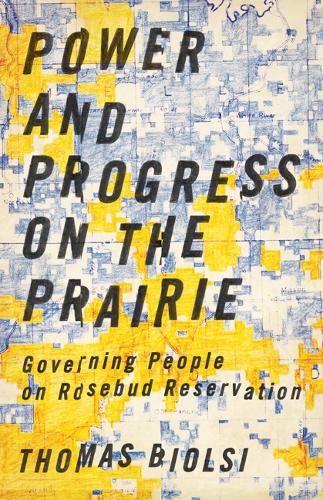
Power and Progress on the Prairie: Governing People on Rosebud Reservation
(Paperback)
Publishing Details
Power and Progress on the Prairie: Governing People on Rosebud Reservation
By (Author) Thomas Biolsi
University of Minnesota Press
University of Minnesota Press
27th March 2018
United States
Classifications
General
Non Fiction
History of the Americas
Local history
Central / national / federal government policies
Regional and area planning
978.3/62
Physical Properties
Paperback
360
Width 140mm, Height 216mm, Spine 51mm
Description
A critical exploration of how modernity and progress were imposed on the people and land of rural South Dakota The Rosebud Country, comprising four counties in rural South Dakota, was first established as the Rosebud Indian Reservation in 1889 to settle the Sicangu Lakota. During the first two decades of the twentieth century, white homesteaders ar
Reviews
"Power and Progress on the Prairie provides a unprecedented application of Foucaultian governmentality and biopower, Marxist primitive accumulation, and Tania Li's concept of the will to improve in the context of the development and disciplining of the rural North American heartland. An insightful, empowering read for those working to understand U.S. policy over time in rural contexts and Indian-White relations in the context of State interventions, this book will help students think creatively and confidently about operationalizing political economic theory over space and time to unpack the messy and incomplete process of governing rural America."Beth Rose Middleton, University of California, Davis
Author Bio
Thomas Biolsi teaches Native American studies and comparative ethnic studies at the University of California at Berkeley. He has been conducting research on Rosebud Reservation for thirty years. His previous books include Deadliest Enemies: Law and Race Relations on and off Rosebud Reservation (Minnesota, 2007) and Organizing the Lakota: The Political Economy of the New Deal on the Pine Ridge and Rosebud Reservations.
